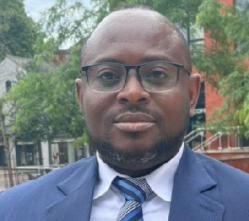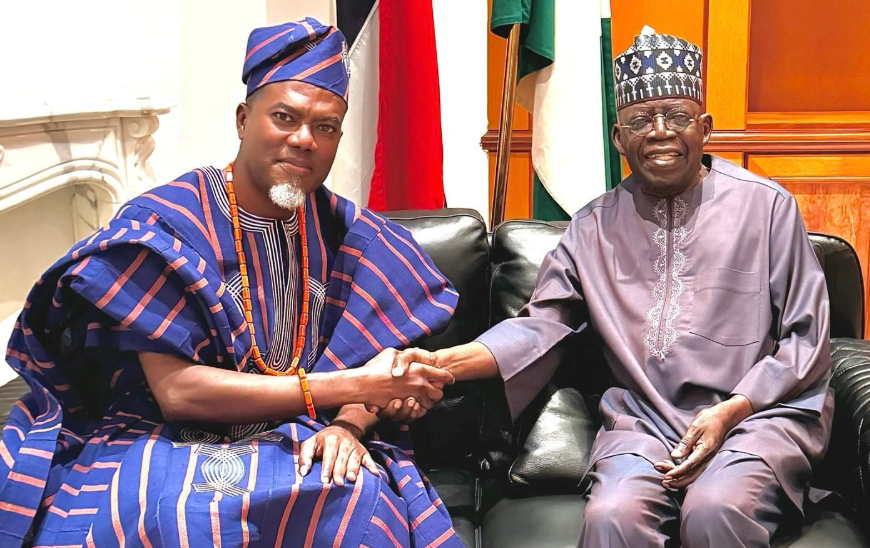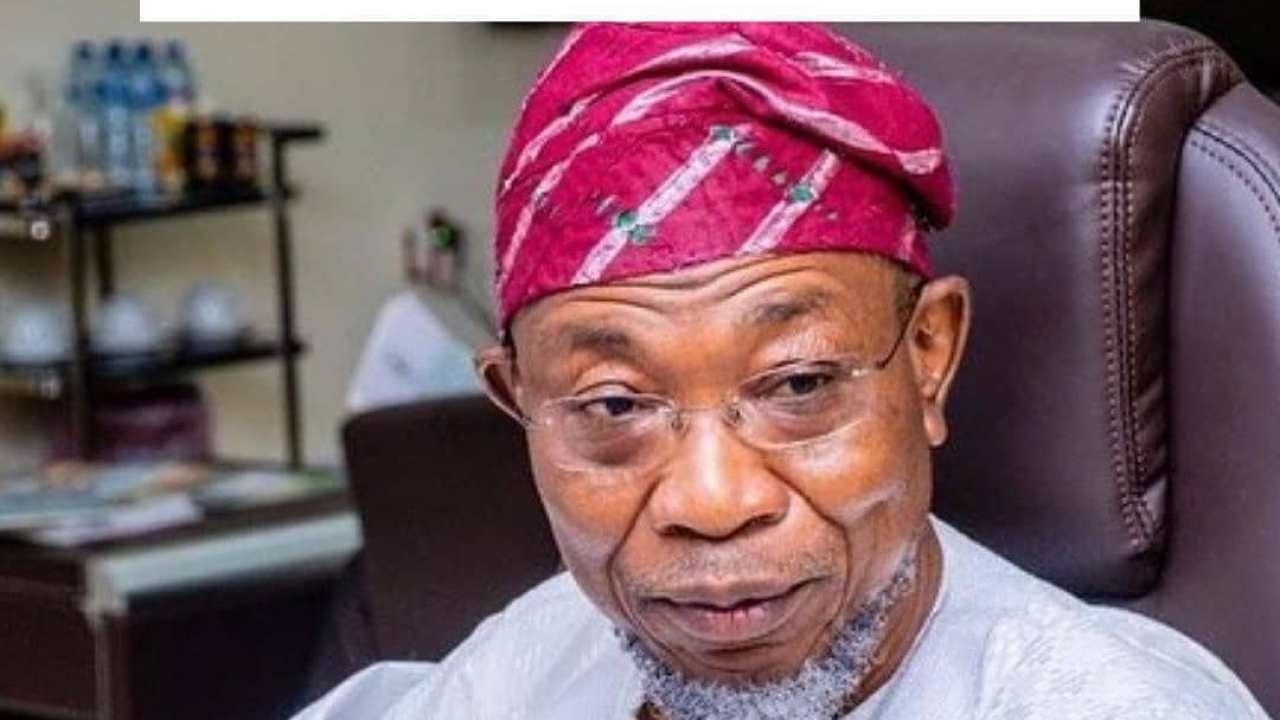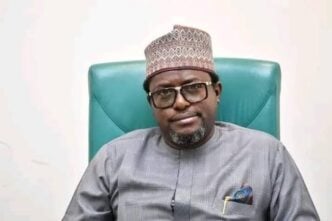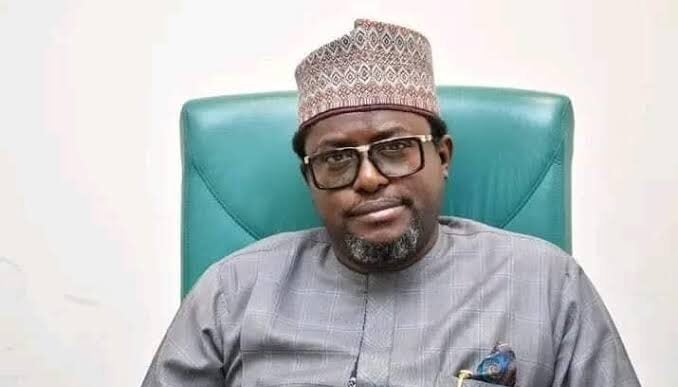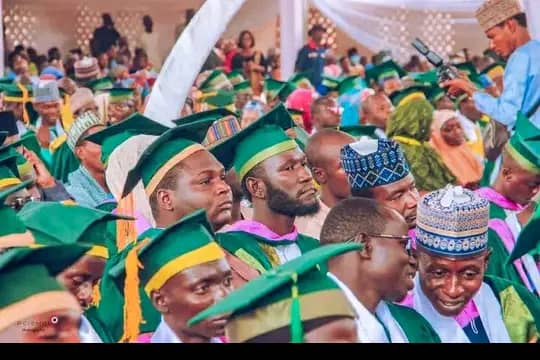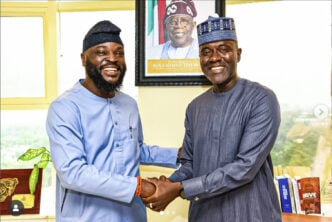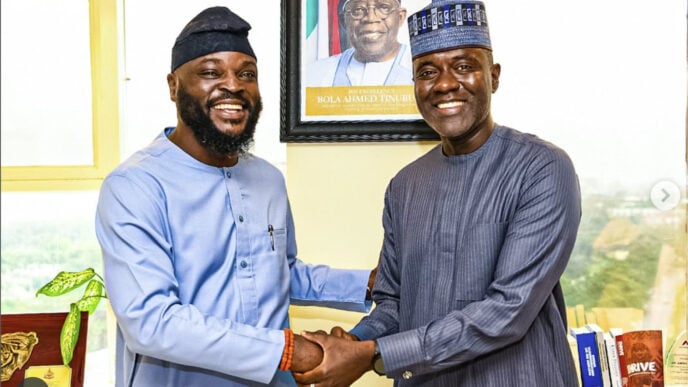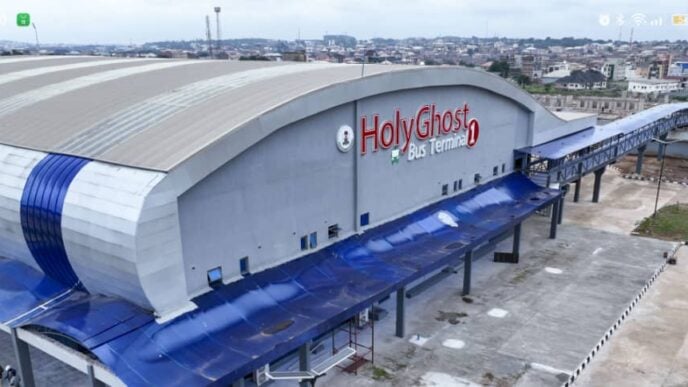Reno Omokri and President Bola Tinubu
In Nigerian politics, there are no permanent enemies but only permanent interests. This much is evident in the public reinvention of some of President Bola Ahmed Tinubu’s most vicious former critics, who now not only defend him but actively glorify his presidency and even wage war against anyone who dares to criticise the administration. In Nigeria today, three of these figures come to mind – the three musketeers of Reno Omokri, Daniel Bwala, and Femi Fani-Kayode (FFK). In local parlance, they are known as the ‘Anywhere Belle Face’ politicians – a phrase used to describe someone who changes with the situation as long as they find another one which favours or gives them the next meal ticket.
What is most striking isn’t that these three musketeers have changed their minds and are now rabid pro-Tinubu supporters. It is how quickly and how completely they have reversed course, abandoning years of sharp criticism to now praise the same man they once swore never to support and launched all manner of vitriolic attacks against his presidential ambition. This isn’t political maturity or love for the country. It is political opportunism and patronage. In local parlance, it is known as ‘Anywhere Belle Face’ – a phrase used to describe someone who changes with the situation as long as they find another one which favours them or gives them the next meal ticket.
What is most striking isn’t that these three musketeers have changed their minds and are now rabid pro-Tinubu supporters. It is how quickly and how completely they have reversed course, abandoning years of sharp criticism to now praise the same man they once swore never to support and launched all manner of vitriolic attacks against his presidential ambition. This isn’t political maturity or love for the country. It is political opportunism and patronage. In local parlance, it is known as ‘Anywhere Belle Face’ – a phrase used to describe someone who changes with the situation as long as they find another one which favours them or gives them the next meal ticket.
Reno Omokri
Advertisement
Leading the trio is Reno Omokri, a former media aide to former President Goodluck Jonathan and member of the opposition Peoples Democratic Party (PDP). Omokri, once one of Tinubu’s most relentless online attackers, repeatedly accused him of being a “drug baron”, referencing the 1993 U.S. court forfeiture case. His posts during the 2023 election cycle were filled with ridicule, disdain, and moral outrage. He questioned Tinubu’s health, his ethics, and even his legitimacy. He even led a protest against Tinubu in the US.
In a post on his Facebook page on December 5, 2022, he wrote, “Tinubu will never forget the protest we just pulled off at Chatham House in his life. He was disgraced and could not get out of his car. He had to run away. The #HarassTinubuOutOfLondon protest against drug lord Tinubu at Chatham House was a resounding success! The British media were there, and Tinubu was projected to them for what he is: a KNOWN DRUG LORD! . In another post, he wrote, “Anti-Drugs Protest at Chatham House. Tinubu is a KNOWN DRUG LORD, and it is up to us to expose him wherever he goes.”
Shortly after Tinubu was declared the winner of the 2023 presidential election, Omokri, in a viral video, was asked if he would ever work with Tinubu. He replied with an air of certainty, “Someone from Tinubu’s camp has already reached out to me, and I told the person I can’t do it. It cannot happen. It’s just against my principles. Some people can do that, but it’s not in my DNA; I can’t do it. It’s never going to happen. I wish Tinubu well if the courts uphold his election, but I can never work with him.”
Advertisement
Yet just two years later, Omokri flew in from California to Lagos — not to protest against Tinubu’s government — but to defend the Lagos-Calabar Coastal Highway, one of Tinubu’s flagship infrastructure projects. He not only carried the project on his head like Gala, but he also spoke on it passionately, more than the Works Minister, Dave Umahi, and media aides of the president.
Everywhere he goes, he now praises Tinubu’s international diplomacy, including efforts to bring Nigeria closer to BRICS, and labels critics of the president’s projects as “tribalists” and “dividers”. Omokri insists he’s simply being objective. But when objectivity begins right after a presidential election — and after repeated public declarations to the contrary — Nigerians are right to raise their eyebrows, labelling him as a Janus-faced personality with no iota of credibility.
Daniel Bwala
Daniel Bwala, a lawyer, PDP chieftain and former spokesperson of Atiku Abubakar in the 2023 presidential election, was even more categorical in his rejection of Tinubu. In a widely circulated 2023 interview, Bwala said:
Advertisement
“Even if you give Tinubu 30 years in office, he will achieve absolutely nothing.” He questioned Tinubu’s capacity to govern and accused him of running on a platform built solely on propaganda and power consolidation. He angrily left the ruling APC and joined the PDP because of the Muslim-Muslim ticket of Tinubu and his running mate, Kashim Shettima, and warned that a Tinubu presidency would be a “national disaster”.In April 2023, Bwala accused Tinubu of rigging the presidential election and said that the President would face challenges with moral legitimacy upon assuming office. He described Tinubu as a “president-select” rather than a “president-elect”, accusing the Independent National Electoral Commission (INEC) of manipulating the presidential election results in his favour.
Fast-forward to 2025, Bwala has defected from the PDP to the APC and is now the Special Adviser to President Tinubu on Policy Communication. He is now preaching to Nigerians on the policies of the same man whom he said cannot achieve anything tangible even if he spent 30 years in office. He recently said Tinubu’s achievements in two years have surpassed what the PDP achieved in eight years. Ridiculous, isn’t it?
Bwala now refers to Tinubu as a “visionary” leader with Nigeria’s best interests at heart. When asked what changed, Bwala declined comment, saying his criticism is now a thing of the past. He now says he came to understand the president’s vision better compared to when he was spokesman of Atiku. But many Nigerians suspect it wasn’t insight that triggered the change. It was ‘anywhere belle face’ politics.
Femi Fani-Kayode
Advertisement
Perhaps the most theatrical transformation belongs to Femi Fani-Kayode, former minister of aviation and PDP chieftain. Before joining Tinubu’s camp, FFK was known for his volcanic criticism. Known for his caustic tongue and acerbic remarks, he called Tinubu many derogatory names: “a traitor to the Yoruba race”. He accused him of being “a dictator in Lagos, worse than Abacha” and “a coward who fled Nigeria under Abacha while others stood to fight.”
He warned that Tinubu’s rise to the presidency would plunge Nigeria into darkness. But by the 2023 campaign season, FFK had become one of Tinubu’s most aggressive defenders, often attacking opposition voices with the same rhetorical venom he once used against the man he now praises. He now refers to Tinubu as “the most prepared president Nigeria has had since 1999.” If consistency is a political virtue, FFK has declared bankruptcy. It was recently reported that the president has nominated FFK as an ambassador. Many Nigerians are asking that FFK be posted to Palestine or Israel, given his vocal comments on the Gaza conflict.
Advertisement
These U-turns are not about ideological growth or political evolution — they are about relevance and self-preservation. None of the men has issued a proper public retraction or apology for their previous statements. They simply moved on — as if Nigerians were not paying attention. Their shift from scathing critique to sycophantic praise reveals the rot at the heart of Nigerian politics: a transactional culture where access to power matters more than integrity, and where public figures flip loyalties with no regard for public trust. In most mature democracies, such about-faces would be accompanied by reflection, remorse, or accountability. In Nigeria, they come with press conferences, media rounds, and strategic selfies.
At the heart of these political somersaults lies a more dangerous truth: most Nigerian politicians are not driven by ideology, vision, or values — they are driven by access to money and patronage. In other words, Nigerian politics is not about public service; it’s about positioning for relevance, reward, or rent. Politicians change parties like outfits and change principles like passwords. This moral elasticity is why individuals can oppose Tinubu as a “danger to democracy” one year, then praise him as the “saviour of Nigeria” the next — without blinking. When politics becomes a hustle and not a calling, betrayal becomes routine.
Advertisement
On a final note, credit must be given where due: President Tinubu has masterfully neutralised his former critics, co-opting them into his narrative without lifting a finger. His political acumen is unquestionable. Tinubu, a seasoned strategist, understands the value of neutralising opponents and expanding his coalition. Politics, after all, is about building bridges, not burning them. He knows how to convert an enemy into a friend and how to turn adversaries into assets. He prefers having more friends on his side than foes. How Tinubu converted these three musketeers needs to be studied.
But this should concern us. A democracy without principled opposition is not a democracy — it’s an echo chamber. And when dissent becomes a stepping stone to favour, our civic space shrinks.
Advertisement
The stories of these three musketeers – Omokri, Bwala, and Fani-Kayode – are not isolated. They are symptoms of a larger, sicker political culture that rewards betrayal and punishes consistency. Many loyal party members who laboured consistently for the president and received bullets on his behalf are now left in the lurch, while those who vilified him are now the ones dining at his table. This raises a critical question: what message does this send about loyalty in Nigerian politics? If those who opposed you yesterday can be richly rewarded today, while your defenders remain abandoned, what incentive remains for genuine party faithfulness?
Akinsuyi, former group politics editor of the Daily Independent, writes from Abuja. He can be reached at [email protected].
Views expressed by contributors are strictly personal and not of TheCable.
